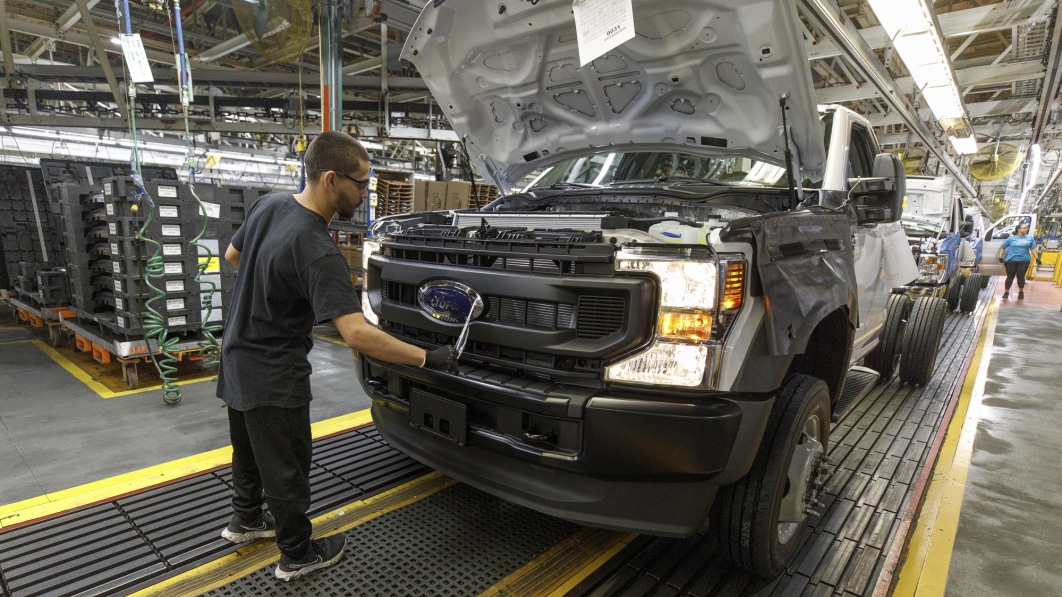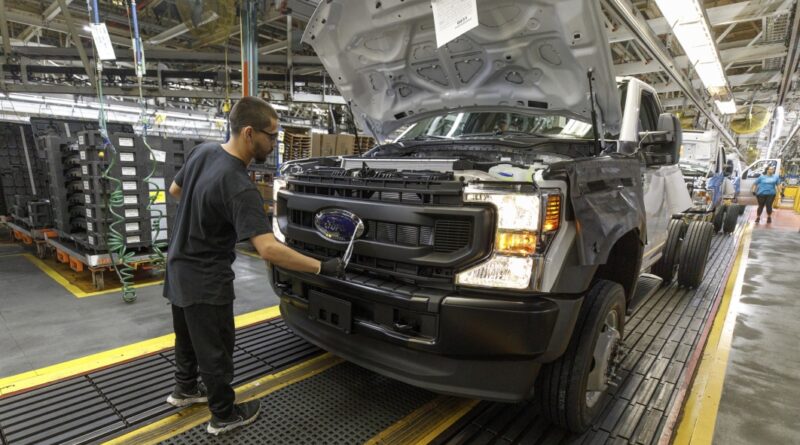Ford’s Farley strongly hints that future models might not be built in UAW plants

The massive strike that the United Auto Workers (UAW) organized against Detroit’s Big Three in 2023 cost carmakers billions of dollars. While the agreements signed were largely seen as a win for the UAW, Ford warned the strike will have long-term ramifications for the union.
Speaking at the Wolfe Research Global Auto Conference, company boss Jim Farley said that his team will “think carefully” about where to build upcoming vehicles, which is a hint that some future cars may not be manufactured in factories whose workers are represented by the UAW. He cited an example, according to the Associated Press. Ford builds pickup trucks, including the highly profitable and perennially popular F-150, in the United States rather than in Mexico like some of its rivals. Labor costs are higher on this side of the border, so each truck costs more to build, but Farley explained that Ford made this choice because it considered the tradeoff was the “right kind of cost.”
The strike cast this cost and a once-amicable relationship in a different light. “Our reliance on the UAW turned out to be we were the first truck plant to be shut down. Really, our relationship has changed. It’s been a watershed moment for the company. Does this have business impact? Yes,” he said.
UAW President Shawn Fain quickly responded to Farley’s comments. “Maybe Ford doesn’t need to move factories to find the cheapest labor on Earth. Maybe it needs to recommit to American workers and find a CEO who’s interested in the future of this country’s auto industry.”
Farley didn’t reveal precisely how the strike will affect the process of choosing what to build in which plant, but AP thinks a recently-announced small electric model may be affected. The brand’s business plan seemingly hinges on the car’s ability to qualify for federal tax credits of up to $7,500. Ford could, in theory, build the EV in Mexico, save money, shield itself from strikes, and still allow buyers to qualify for tax breaks. The model should make its debut in the coming years, and Ford needs to decide where to build it relatively quickly.
The strike sent shockwaves across the entire automotive industry. Once the UAW signed agreements with Ford, Stellantis, and General Motors, it turned its attention to the companies that operate non-unionized plants in the United States. It notably launched a bid to organize Tesla, which gave employees an unspecified raise in a bid to avoid unionization. It’s also trying to organize the plant that Volkswagen runs in Chattanooga, Tennessee, and the Mercedes-Benz plant in Alabama, and it claims 30% of workers in Hyundai’s Alabama factory have so far expressed that they want to join.
Ford has previously estimated that the agreement with the UAW will cost it about $8.8 billion in additional labor costs over the next four years and eight months. Farley told the same conference that he plans to offset some of that amount by keeping quality in check, and wishes he’d focused on that sooner.
“I wish I had the same laser-focus on transforming our industrial system [as on other parts of the business,]” he told the crowd. “The capability atrophy in engineering, supply chain, and manufacturing at Ford — [CFO] John [Lawler] and I talk about this every day — needed a much more fundamental reset than I had realized. I think we all have regrets, and that’s a big one for me. It’s a humbling thing.”
Ford issued over 50 recalls in 2023. While that’s not a glittering statistic, experts argue that it’s a sign the brand is serious about identifying and fixing quality problems, even when they’re relatively minor. Farley has already implemented ways to improve quality in order to reduce the number of recalls, according to Automotive News. He’s notably establishing a link between quality scores and employee bonuses.
“You have to set up a culture shift — a performance reward system where every engineering manager, purchasing component manager, and plant manager is fully accountable for the quality and cost of their work,” he said. Before he took the reigns in 2020, the majority of managers received a full bonus regardless of how many recalls Ford issued or how many quality problems it needed to fix, Automotive News adds.




